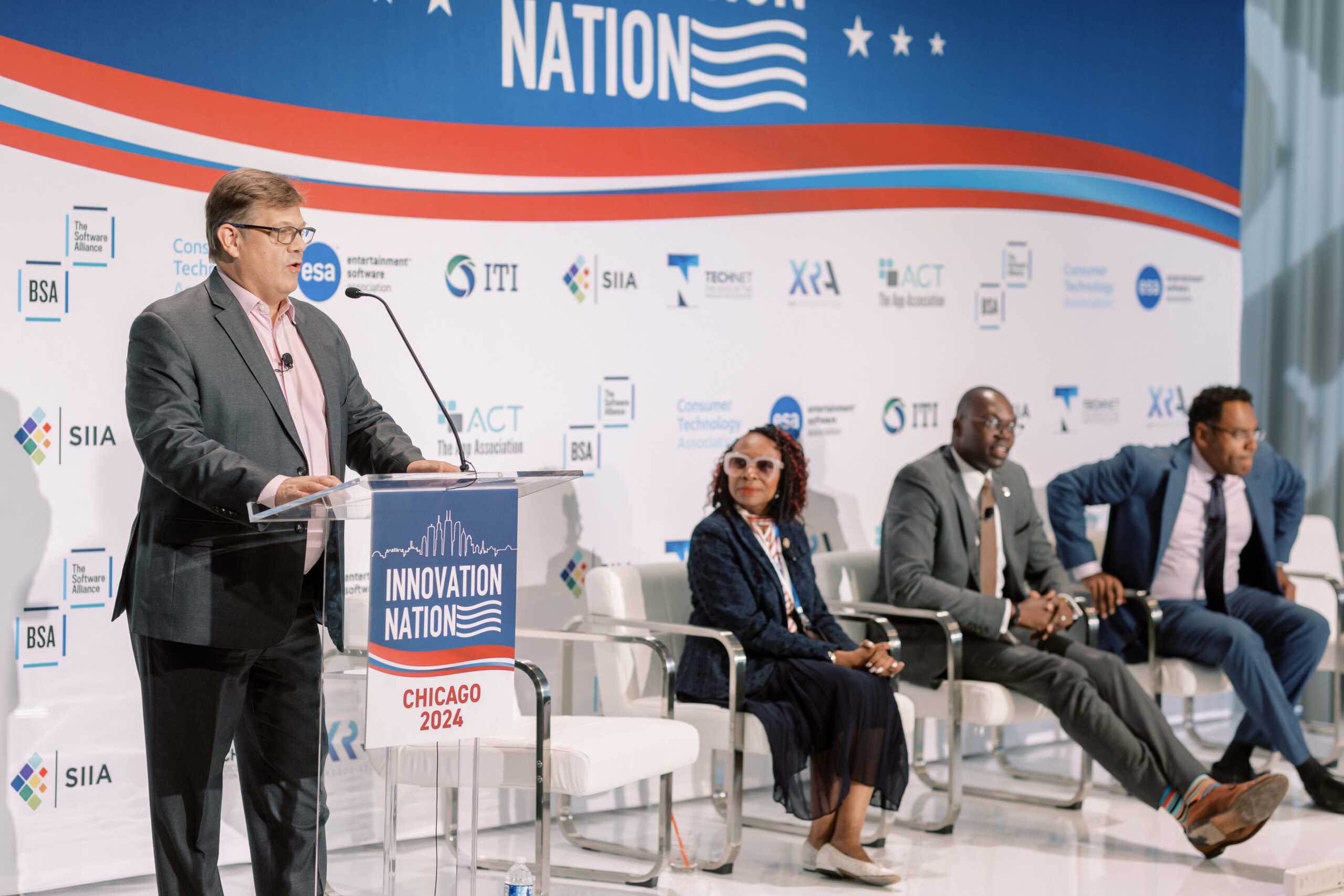This has been a busy summer for ACT | The App Association! In addition to several events in Europe and inside the Beltway, we co-hosted Innovation Nation, a tech policy forum that held a full day of events at both the Republican and Democratic National Conventions. App Association President Morgan Reed spoke at both events.
At the Republican National Convention: Morgan set the stage for the first panel out of the gate, providing a framework for a panel including IBM Vice Chairman and former National Economic Council (NEC) director Gary Cohn and House Ways and Means Committee Chairman Jason Smith. Tiffany Moore, Senior Vice President of the Consumer Technology Association (CTA), moderated a discussion that ranged from tax reform to trade and economic recovery.
In his opening remarks, Morgan reminded the audience that small businesses must be at the center of tech and economic policy in the next Administration. Drawing on App Association member company examples, Morgan described how small companies in the app economy are modernizing virtually all sectors of the economy. Throughout the event, other panelists and speakers referred back to his point that our members provide software platforms and devices for manufacturers, teachers, and pig farmers to simplify tasks and augment capabilities from labor and inventory management to planning for the next year. The summary that everyone remembered was that “small app companies literally help bring bacon to the table, and we have to understand that” before rushing in with government intervention.
Wrapping up his comments, Morgan implored the audience of policymakers and policy experts to think about how government actions to take on Big Tech affect small tech. The large software platforms and online marketplaces App Association members often leverage to distribute their products and services are powerful and important for app makers and consumers alike. But App Association members bring the constantly evolving and improving software tools and connected devices to the online marketplaces consumers like to use and which are now in policymakers’ crosshairs. Morgan’s closing message urged audience members to think carefully about how government action—or in some cases inaction—affects these important engines of innovation, job creation, and growth.
At the Democratic National Convention: Morgan hosted and moderated one of the day’s key panels, “Innovation for All.” This conversation included Representative Yvette Clarke (D-NY-09), Michigan Lieutenant Governor Garlin Gilchrist II, and Salesforce President and Chief Legal Officer Sebastian Niles. Morgan highlighted the benefits of finding people who are not being heard and adding their voices to the conversation, enabling our members to serve the greatest number of people through their innovative products.
Representative Clarke keyed in on the importance of broadband access in both rural and urban communities. She noted, “The Biden-Harris administration has made investments in communities a part of their agenda. Building out ecosystems in the tech space is part of the equation.” For some communities, the distances they need to travel may be short, but the lack of reliable transportation means people in unserved or underserved communities are still spending hours to get where they need to go for access to things like reliable internet. Lieutenant Governor Gilchrist brought up that it is our responsibility to consider these factors in our planning. “We each have a challenge, and the solutions may look different, but our responsibility is to solve the problem.”
Salesforce President Sebastian Niles jumped into the conversation to highlight responsible use of artificial intelligence (AI). Morgan commented on the trust and safety impacts of the work tech companies are doing, and Niles agreed that the data has to be trusted. He knows access to responsibly designed and implemented technologies will be a huge boost to communities and noted that those who understand and trust the technology now “are taking off like a rocket.”
The panel drove home the importance of responsible policymaking as well as responsible development of innovative technologies. Policymakers must consider trust, safety, and other issues like bias mitigation when they focus on these issues.
